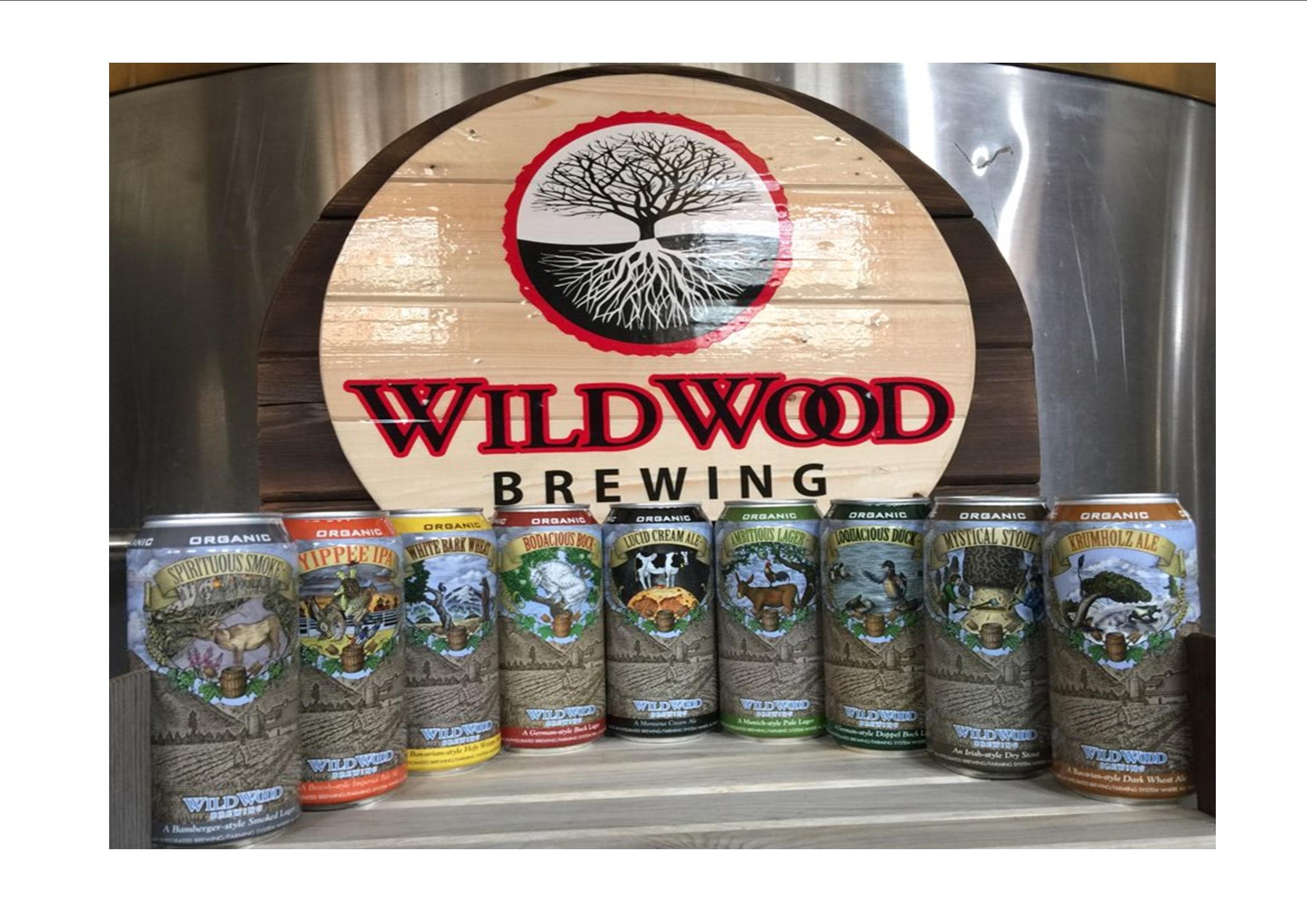The Integrated System
The Wildwood Brewing Company is building an integrated production system which will transform waste streams from the brewing process into inputs for a network of industries. The cyclical, efficient use of raw materials and energy will reduce operating costs, allow the associated businesses to sustain themselves at lower production levels than their competitors, and provide a model for sustainable development.
The Costs of a Barrel of Beer
In a traditional brewery, producing beer results in a significant waste stream. This waste is a business expense, an inefficient use of resources, a burden on the environment and community, and a loss of opportunity.
For example, up to ten barrels of water may be used in producing one barrel of beer. Most of that water ends up in a sewage treatment plant mixed with spent hops, surplus yeast, and cleaning chemicals. Of about 45 pounds of barley malt that go into making that barrel of beer, more than 41 pounds come out of the brewing process as waste. Significant quantities of heat and carbon dioxide are also released in the brewing process, and much of the packaging used in selling beer ends up as waste.
drawing: traditional brewery
Turning Costs into Opportunities
The Wildwood Brewing Company offers a better way by turning wastes into value added inputs to support other productive enterprises. Eventually, the cycles will be completed so these enterprises provide the majority of needed inputs to each other.
Our vision is based on a proven model developed by Zero Emissions Research and Initiatives (ZERI.ORG), and the success of the functioning examples in two other countries. The Wildwood Brewery will be at the heart of the cluster of enterprises that cycles and recycles materials and energy, growing toward zero emissions and imitating the interdependent processes of nature. As we build, each new link will offer enterprises and industries that benefit the people, the economy, and the environment of western Montana.
drawing: zero emission brewery
Toward Zero Emissions
Our network will be based on a flow of materials from one enterprise to another, making the best possible use of generated “waste” of each process. In this manner, value is added at each stage, and costs are lowered. Here are some of the main enterprises and processes we envision in our zero emissions demonstration project:
a) Brewery – Wildwood brewery produces high-quality, certified organic beer.
b) Mycoculture – Spent grain from the brewery provides the substrate for growing mushrooms for local and regional sale. Mushrooms break down the spent grain and make a nutritious and easily digested food for animals.
c) Vermiculture – Used mushroom substrate feeds worms that produce compost and become feed for chicken and fish. The worms are also the base for biodegradable detergents. A unique separation technology will be used to create enzyme-based cleaners for the brewery and other users. Live composting worms may also be sold in bulk and in home composting kits.
d) Biodigestion – With inputs of wastewater from the brewery and organic waste from other operations, anaerobic bacteria in the biodigester produce methane gas that will be used as a heating or power-generating fuel. Biodigestion also produces organic nutrients that are used in aquaculture.
e) Aquaculture – Water and nutrients from the digester feed algae such as Spirulina, phytoplankton and other aerobic organisms which become inputs to polyculture fish farming. Spirulina, known as a “superfood”, can be separated and sold to the expanding health food market. Hydroponic produce will also be grown in the nutrient rich water. This water is subsequently used in agriculture.
f) Agriculture – Recycled water, nutrients from the brewery, digesters and aquaculture, and worm compost are used as inputs for growing organic produce for local market. Hops could also be grown for use in the brewery as the climate in western Montana is ideal for this crop. Carbon dioxide from brewery fermentation and mushroom cultivation are utilized by plants in the greenhouse.
g) Animal husbandry – Small numbers of pigs, chickens, ducks and turkeys will be economically supported on the Wildwood farm. The waste from the animals is flushed daily into the digesters providing the bacteria necessary for anaerobic digestion. The animals will enjoy a clean and healthy life, with good food, fresh air and exercise.
h) Maltery – A small malting plant can provide enough high quality organic barley and wheat malt for the Wildwood brewery and perhaps other breweries in the area.
i) Heat recovery – Heat produced in the brewing process will be recovered and used to heat buildings, digesters, aquaculture ponds, greenhouses, drying mushrooms, and driving other production processes.
Project Status
We are building this project on the solid foundation of an operational template based on successful models in Fiji and Namibia. We have made additional calculations specific to the Montana environment, the regional market, our brewing equipment, and the facility we envision.
A complete complement of state-of-the-art, energy efficient, and multi-use brewery equipment has been installed and has provisions for the build out of the integrated system.
Our vision is to create a sustainable, cyclical network of businesses that support each other by converting waste streams into value-added resources for other industries.
